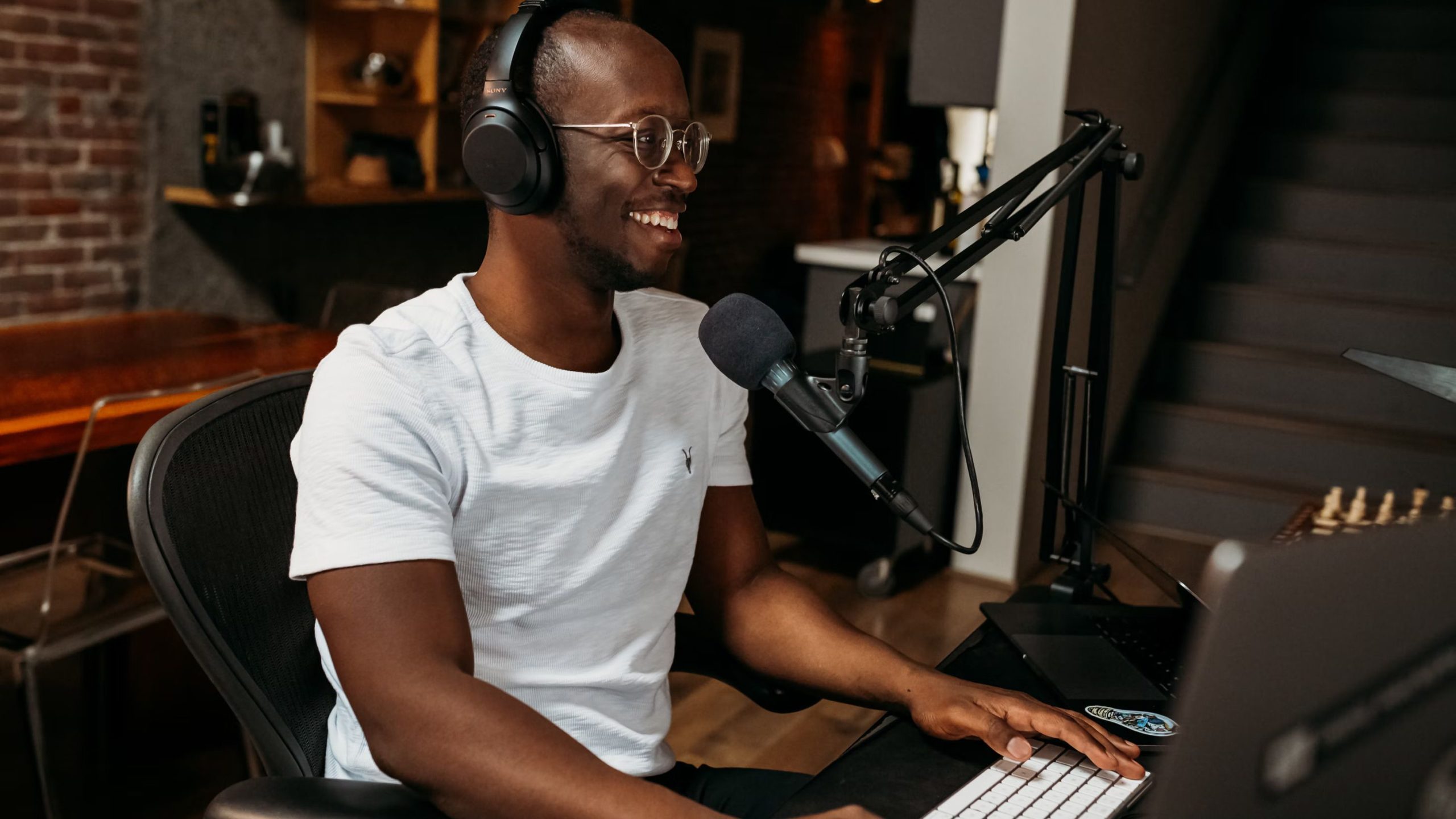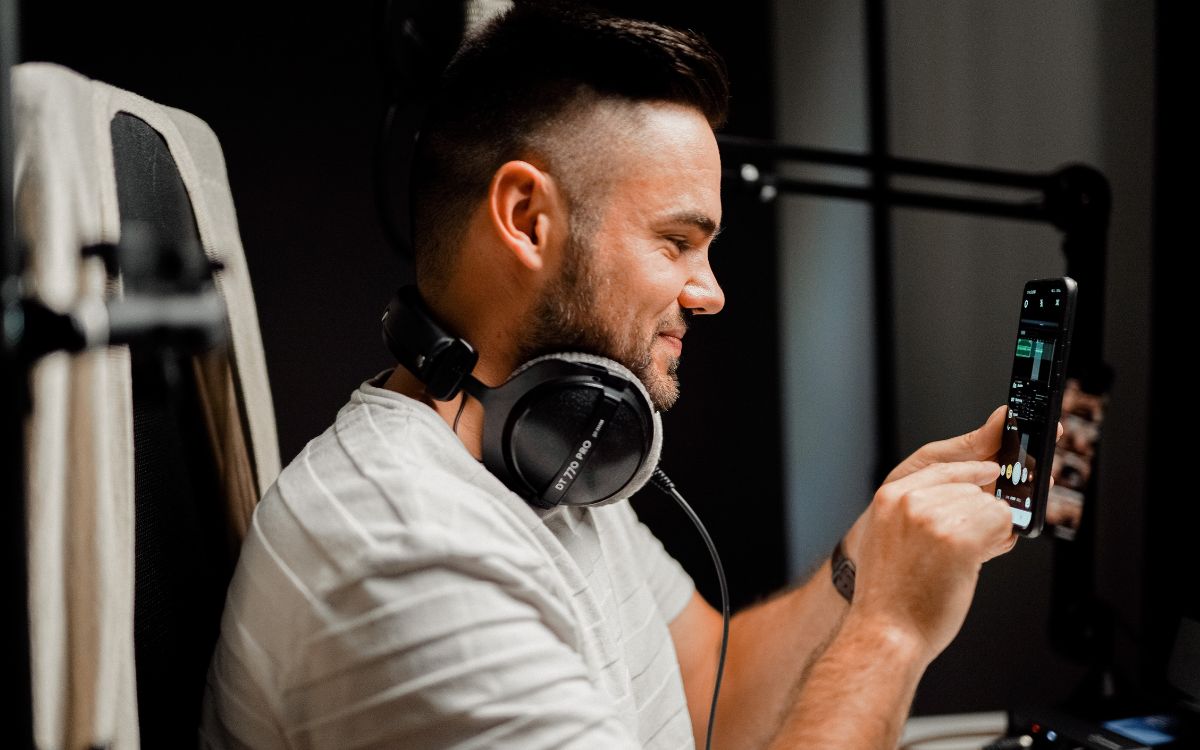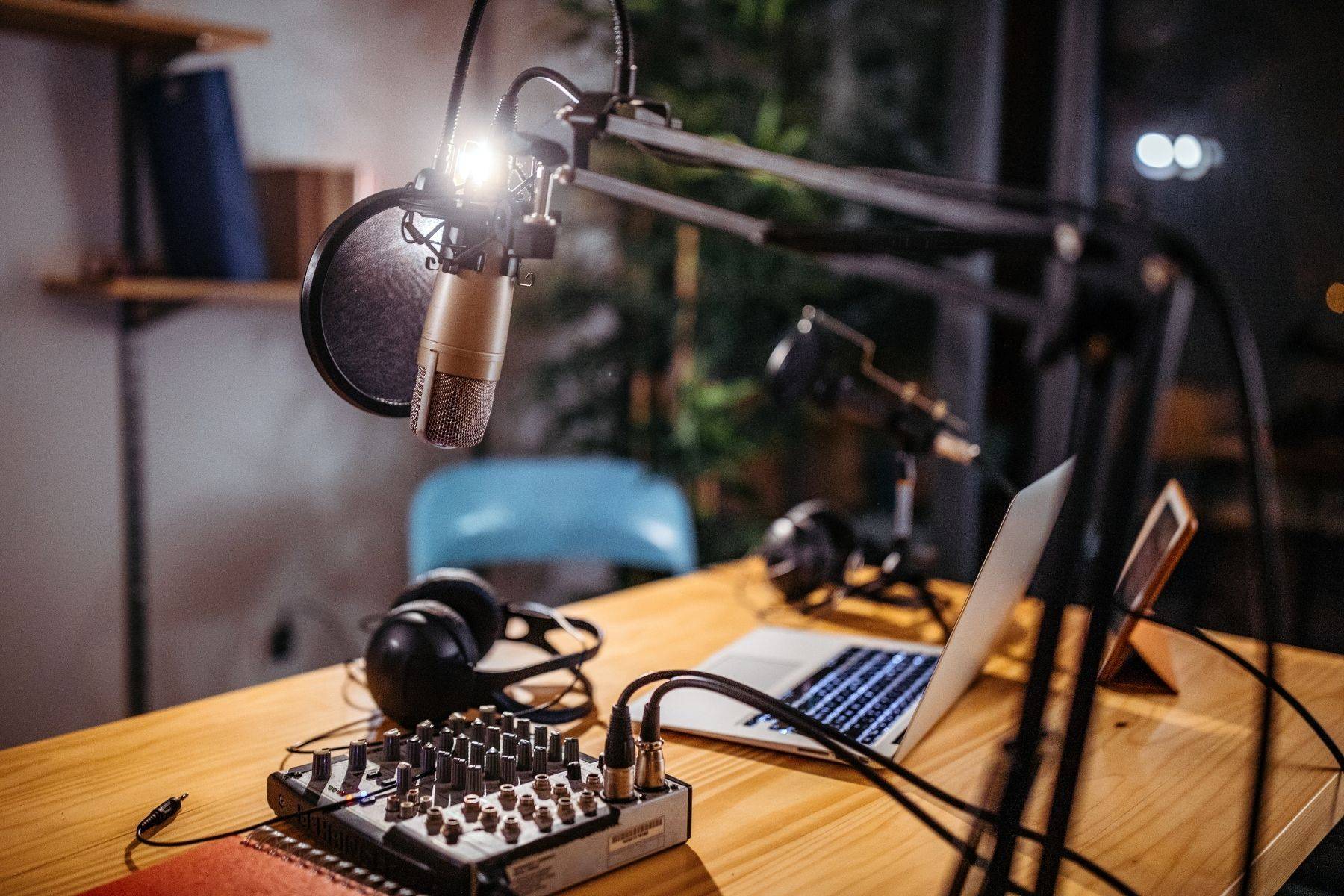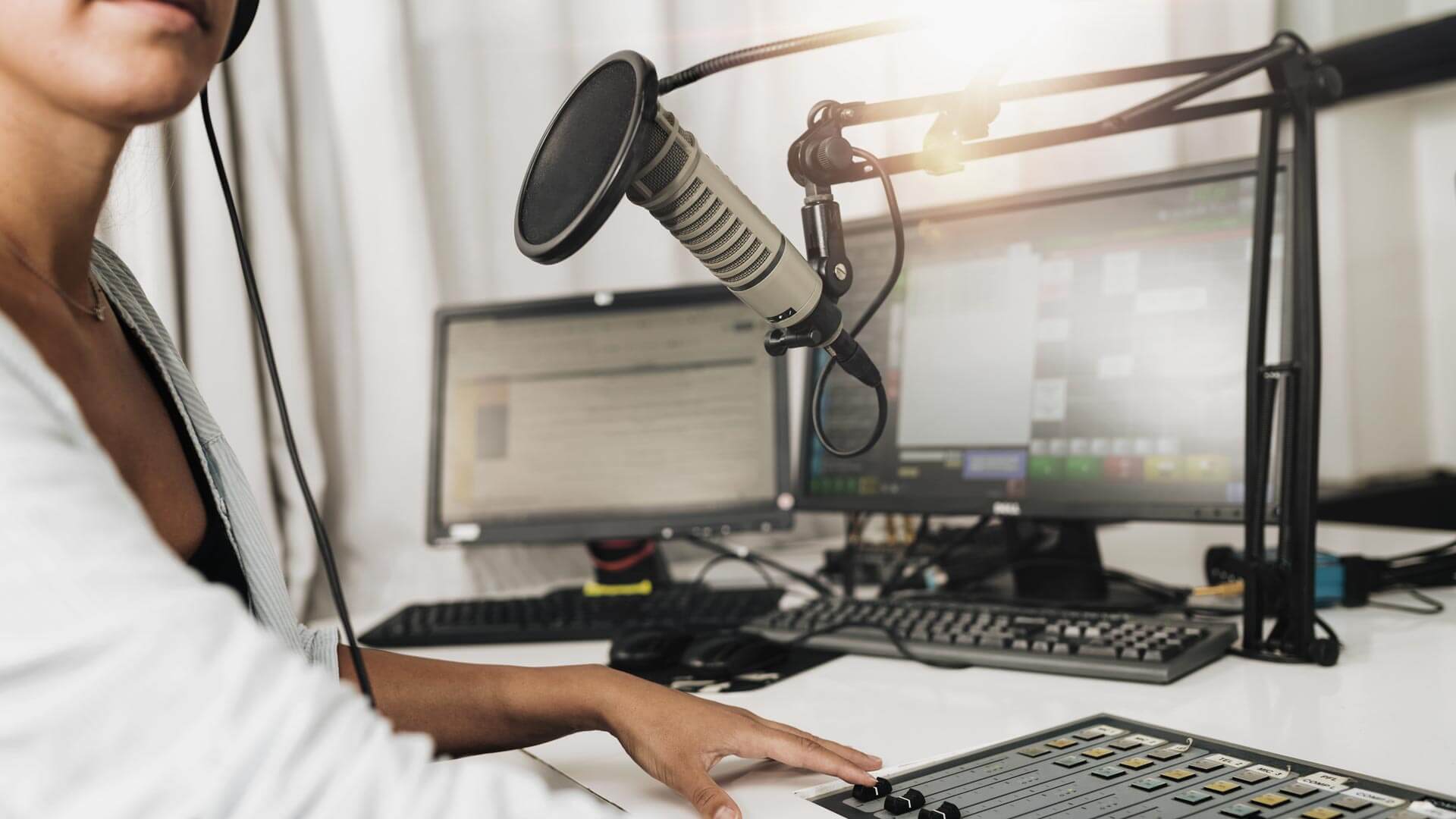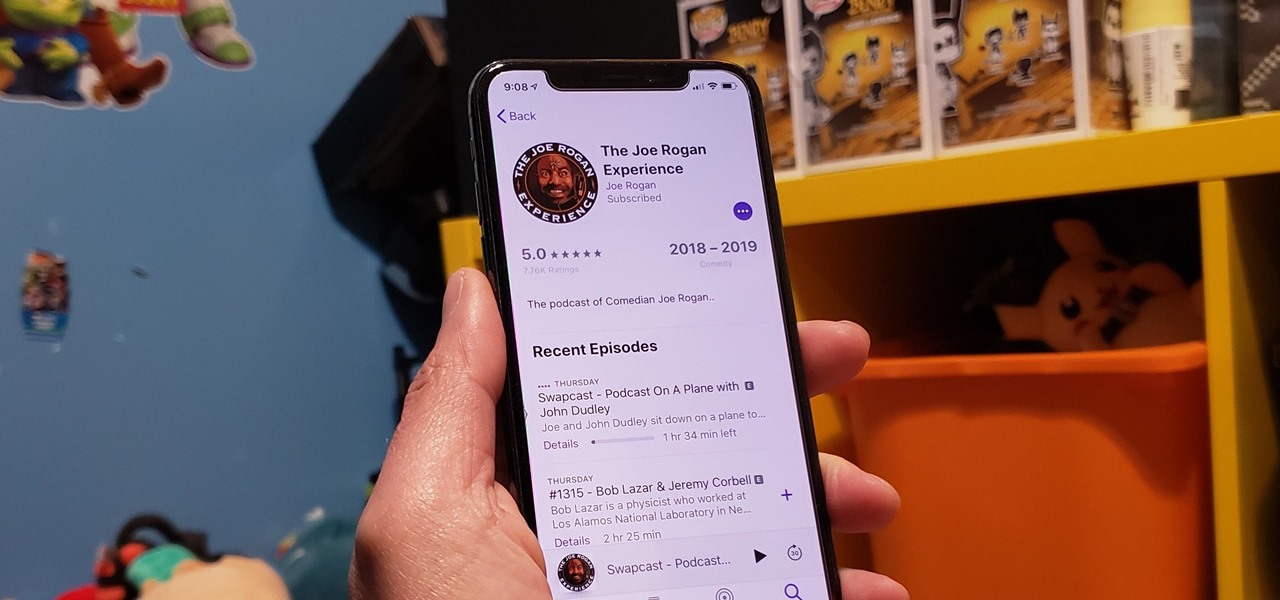Home>Events & Info>Podcast>How To Do A Podcast Interview
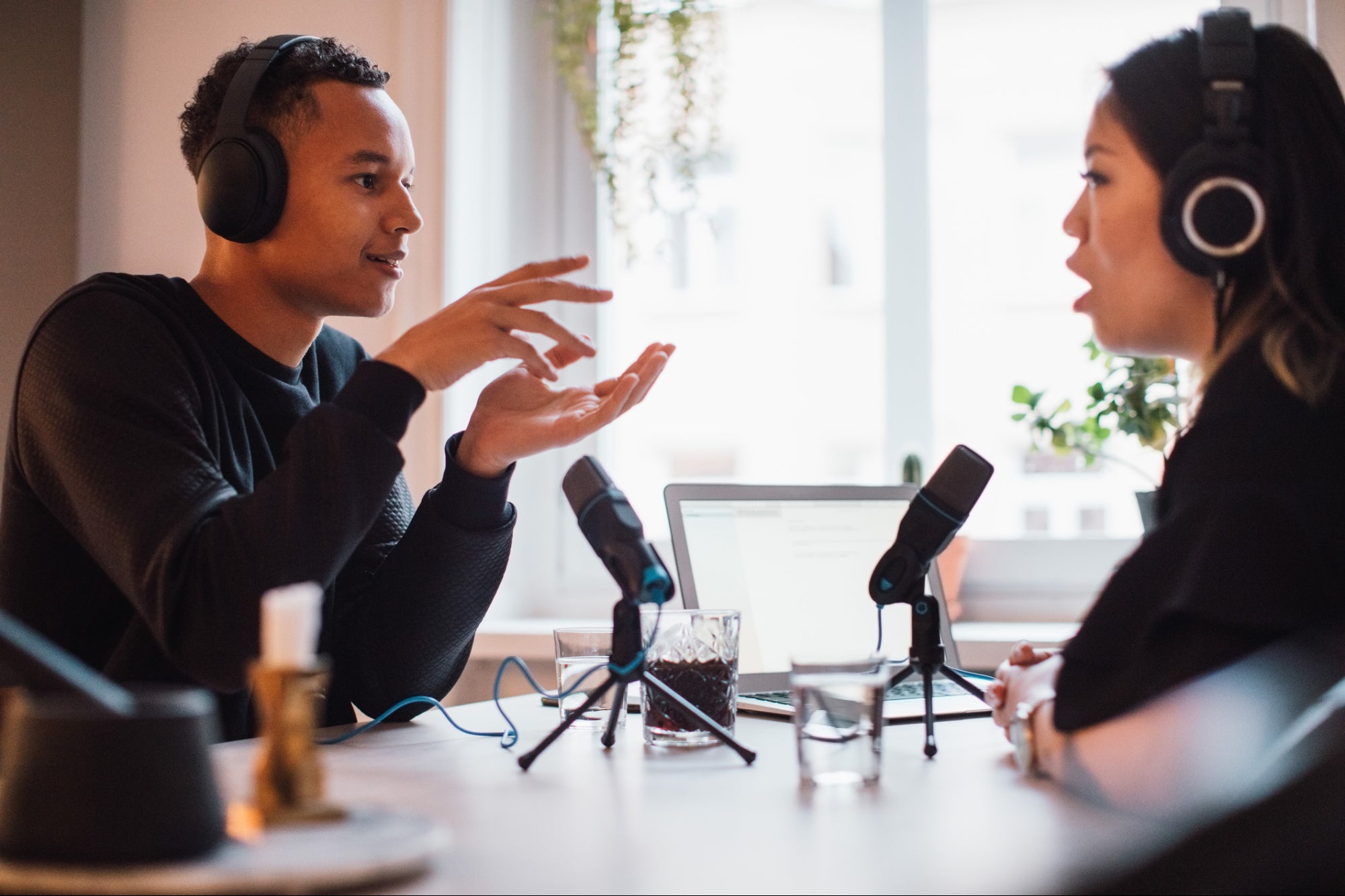

Podcast
How To Do A Podcast Interview
Modified: January 22, 2024
Learn how to conduct compelling podcast interviews and engage your audience with expert tips and techniques. Explore the art of podcasting with our comprehensive guide.
(Many of the links in this article redirect to a specific reviewed product. Your purchase of these products through affiliate links helps to generate commission for AudioLover.com, at no extra cost. Learn more)
Table of Contents
- Introduction
- Step 1: Preparing for the Interview
- Step 2: Researching the Interviewee
- Step 3: Crafting Engaging Questions
- Step 4: Setting up the Interview
- Step 5: Conducting the Interview
- Step 6: Active Listening and Responding
- Step 7: Handling Technical Issues
- Step 8: Wrapping up the Interview
- Step 9: Post-Interview Follow-up
- Conclusion
Introduction
Podcasts have become an increasingly popular medium for sharing information and connecting with audiences. With their rising popularity, podcast interviews have become a valuable tool for content creators, allowing them to bring in expert guests or share their own expertise with listeners.
However, conducting a successful podcast interview requires careful preparation and execution. It involves more than just pressing record and asking questions. With the right approach, you can create an engaging and informative interview that will captivate your listeners.
In this article, we will explore a step-by-step guide on how to do a podcast interview. From preparation to follow-up, you will learn the essential elements to make your interview a success. Whether you are a seasoned podcaster looking to refine your interviewing skills or a beginner starting out, these tips will help you conduct an engaging and professional podcast interview.
So, let’s dive in and discover how to master the art of conducting a podcast interview!
Step 1: Preparing for the Interview
Before diving into the interview, it’s crucial to spend time preparing to ensure a smooth and successful conversation. Here are some key steps to help you get ready:
- Research the interviewee: Start by doing thorough research on the person you will be interviewing. Look into their background, expertise, and past interviews to gain a deeper understanding. This will not only help you craft better questions but also show your guest that you value their work and knowledge.
- Define the interview’s purpose: Clarify your goals and objectives for the interview. Is it to educate, entertain, or inspire your audience? Having a clear purpose will guide the direction and tone of the conversation.
- Identify key talking points: Once you have a grasp of the interviewee’s expertise, brainstorm potential topics or key points you want to cover during the interview. This will provide structure and ensure that you cover important areas of interest.
- Create a list of questions: Develop a list of open-ended questions that will encourage your guest to share their knowledge and insights. Avoid questions that can be answered with a simple “yes” or “no.” Instead, aim for questions that elicit thoughtful responses and promote meaningful discussion.
- Consider the podcast format: Think about the format of your podcast and how it aligns with the interview. Will it be a casual conversation or a more structured interview? Communicate your expectations with the interviewee to avoid any miscommunication.
Taking the time to prepare for the interview will not only make you feel more confident but also demonstrate your professionalism to your guest. It shows that you value their time and expertise, leading to a more productive and engaging conversation.
Step 2: Researching the Interviewee
One of the most crucial steps in preparing for a podcast interview is conducting thorough research on your interviewee. This research will help you gain a deeper understanding of their background, expertise, and unique perspectives. Here’s how to effectively research your interviewee:
- Explore their website and online presence: Start by visiting your interviewee’s website to gather information about their work, achievements, and areas of expertise. Look for any blog posts, articles, or podcasts they have been featured in, as this can provide valuable insights.
- Check their social media profiles: Follow your interviewee on social media platforms such as Twitter, LinkedIn, and Instagram to get a sense of their recent activity and interests. This will also help you identify any topics they are passionate about or currently discussing.
- Read their published work: If your interviewee has published books, articles, or research papers, take the time to read them. This will enable you to ask more nuanced and informed questions during the interview, showcasing your familiarity with their work.
- Listen to previous interviews: Find and listen to any previous interviews or podcast appearances your guest has participated in. This will help you avoid repeating questions they have answered before and allow you to delve deeper into their expertise.
- Identify any shared connections or interests: Look for any common ground or shared interests between you and your interviewee. This can be a useful icebreaker and help establish rapport during the interview.
By thoroughly researching your interviewee, you will be able to craft targeted questions that tap into their knowledge and expertise. It also demonstrates to your guest that you have taken the time to understand their work, leading to a more engaging and valuable conversation for both you and your listeners.
Step 3: Crafting Engaging Questions
One of the keys to a successful podcast interview is asking engaging and thought-provoking questions. Well-crafted questions can spark insightful discussions and elicit valuable insights from your interviewee. Here are some tips to help you create engaging questions:
- Start with open-ended questions: Begin your interview with broad and open-ended questions that encourage your guest to share their experiences and opinions. These types of questions allow for more in-depth responses and foster a more engaging conversation.
- Be specific and focused: While open-ended questions are important, make sure to include specific and focused questions as well. This helps to dive deeper into particular aspects of your interviewee’s expertise and provides more detailed insights for your audience.
- Ask for personal anecdotes or examples: Request personal anecdotes or examples from your interviewee to make the conversation more relatable and interesting. Stories and real-life experiences not only add depth to the discussion but also help your listeners connect with the information being shared.
- Incorporate listener questions: Don’t forget to involve your audience by including questions from them during the interview. This not only boosts engagement but also shows that you value your listeners’ input and perspectives. You can collect listener questions in advance or even during the live recording.
- Balance between technical and accessible questions: Depending on your target audience, strike a balance between technical questions that delve into specific details and more accessible questions that can be understood by a broader range of listeners. This ensures that your interview appeals to both experts and newcomers in the field.
- Allow for unexpected tangents: While it’s important to have a list of prepared questions, be open to allowing the conversation to take unexpected turns. Sometimes the most fascinating insights come from unanticipated tangents. Be flexible and let the conversation flow naturally.
By crafting engaging questions, you create an environment that encourages your interviewee to share their expertise, providing valuable content for your listeners. Asking thoughtful and well-prepared questions will result in a more captivating and insightful podcast interview.
Step 4: Setting up the Interview
Setting up your podcast interview properly is essential to ensure a seamless and professional experience for both you and your guest. Taking the time to prepare the logistics and technical aspects in advance will help you avoid any last-minute hiccups. Here’s how to set up the interview effectively:
- Schedule the interview: Reach out to your interviewee and find a mutually convenient time to conduct the interview. Make sure to consider time zone differences if you’re interviewing someone from a different region.
- Choose the interview format: Decide on the format for your interview based on the goals and objectives you identified earlier. Determine if it will be an audio-only interview or if video will also be involved. Make sure to communicate this to your guest in advance.
- Select the interview location: Choose a quiet and distraction-free environment for the interview. Minimize background noise and echo by selecting a room with good acoustics. Consider using soundproofing techniques or a dedicated recording space to enhance audio quality.
- Test your equipment: Ensure that your recording equipment, such as microphones, headphones, and audio recording software, are working properly. Test the audio levels to make sure both you and your guest can be heard clearly.
- Arrange a backup communication method: Have an alternative method of communication in case of any technical issues during the interview. It can be as simple as having a backup phone number or using a different audio conferencing platform.
- Share interview guidelines: Provide your interviewee with any necessary guidelines or instructions for the interview. This may include the expected length of the interview, any specific topics to be discussed, and any questions or information they should be prepared to address.
By setting up the interview with care, you create a professional and organized atmosphere that allows both you and your guest to focus on the content and deliver a high-quality podcast episode.
Step 5: Conducting the Interview
Now that you have done the necessary preparations, it’s time to dive into the interview itself. This step requires your active participation as an interviewer to guide the conversation while allowing your guest to shine. Here are some tips for conducting a successful podcast interview:
- Create a welcoming atmosphere: Start the interview by welcoming your guest and putting them at ease. Engage in some small talk to build rapport and establish a comfortable environment for both of you to have an open conversation.
- Be an active listener: Pay careful attention to your guest’s responses. Listening actively allows you to pick up on interesting points, follow up with probing questions, and encourage further elaboration. This shows your guest that you value their insights and enables you to navigate the conversation effectively.
- Allow for natural pauses: Give your interviewee time to think and reflect on their responses. Avoid rushing through questions or cutting them off. Pauses can often lead to deeper and more thoughtful answers.
- Encourage storytelling: Prompt your guest to share personal anecdotes and stories related to the topics being discussed. This not only adds a human touch to the interview but also helps to engage your listeners and make the conversation more relatable.
- Go beyond surface-level questions: While it’s good to start with general questions, dig deeper into the subject matter to uncover new insights. Ask follow-up questions that explore different angles or challenge your guest’s viewpoints. This will lead to more thought-provoking discussions.
- Respect your guest’s expertise: Give your interviewee an opportunity to showcase their expertise and unique perspective. Avoid interrupting or talking over them. Let them fully express their thoughts and ideas, providing an enriching experience for your audience.
- Stay on track: While allowing for organic conversations, it’s important to keep the interview focused on the predetermined key points and topics. Drive the conversation towards these objectives to ensure that you cover the intended content.
By conducting the interview in a thoughtful and engaging manner, you will create an enriching experience for both your guest and your listeners. Remember to strike a balance between guiding the conversation and giving your guest the space to share their knowledge and insights.
Step 6: Active Listening and Responding
An essential aspect of a successful podcast interview is actively listening to your guest and responding thoughtfully. Active listening helps you delve deeper into the conversation, understand your interviewee’s perspective, and create a more engaging and dynamic dialogue. Here are some tips to enhance your active listening and response skills:
- Give your full attention: Avoid distractions and focus solely on the conversation at hand. Show genuine interest and maintain eye contact if you’re conducting an in-person interview or maintain focus if you’re conducting a remote interview.
- Take notes: Jotting down key points or interesting insights during the interview can help you remember important details and guide your follow-up questions. It demonstrates your attentiveness and allows for more accurate recap and recapitulation later in the conversation.
- Paraphrase and summarize: Summarize your guest’s main points or ideas to show that you are actively engaged and understanding their perspective. Paraphrasing also allows your guest to clarify any potential misunderstandings and provides an opportunity to deepen the conversation.
- Ask clarifying questions: If something is not clear or you want to gain a deeper understanding, don’t hesitate to ask clarifying questions. This not only shows your curiosity but also ensures that you and your audience fully grasp the concepts being discussed.
- Use verbal cues: Incorporate verbal cues such as “uh-huh,” “interesting,” or “I see” to acknowledge that you are actively listening and engaged in the conversation. Non-verbal cues like nodding or smiling can also demonstrate your attentiveness and encouragement.
- Avoid interrupting: Allow your guest to finish their thoughts before interjecting. Interrupting can disrupt the flow of the conversation and make your guest feel unheard. Instead, wait for appropriate breaks or pauses to contribute your own insights or ask follow-up questions.
- Show empathy and empathy: Show empathy and empathy towards your interviewee’s experiences or opinions. This helps create a supportive and comfortable environment for open discussion and fosters a deeper connection between you and your guest.
By actively listening and responding to your guest, you demonstrate your genuine interest in their expertise and encourage a more collaborative and engaging conversation. This approach not only creates a richer experience for your listeners but also strengthens the relationship between you and your guest.
Step 7: Handling Technical Issues
While we strive for smooth podcast interviews, technical issues can occasionally arise. It’s crucial to be prepared for such situations and have a plan in place to address them promptly. Here are some tips for handling technical issues during your podcast interview:
- Test your equipment beforehand: Ensure that your recording equipment, internet connection, and any necessary software or apps are working properly before the interview. Test your microphones, headphones, and recording settings to avoid any unexpected issues.
- Have backup equipment and connections: Keep backup equipment handy in case of any malfunctions. This may include having an extra microphone or using alternative recording methods if your primary setup fails. Additionally, have backup internet connections, such as a mobile hotspot or alternative Wi-Fi, to avoid interruptions.
- Communicate with your guest: If you encounter technical issues during the interview, communicate openly with your guest. Inform them about the problem and provide reassurance that you are working to resolve it. This transparency helps maintain trust and allows both you and your guest to troubleshoot if necessary.
- Pause and resume if needed: If a technical issue arises, pause the interview and address the problem before continuing. This will prevent any potential loss of valuable content and ensure the quality of the recording.
- Edit out technical glitches: In post-production, you can edit out any technical glitches or interruptions that occurred during the interview. This includes removing portions with background noise, echoes, or any other audio issues to deliver a polished final product.
- Keep calm and professional: It’s important to stay calm and maintain professionalism in the face of technical difficulties. Being prepared and having a backup plan will help alleviate stress, allowing you to handle the situation calmly and efficiently.
- Learn from technical issues: After the interview, take the time to reflect on any technical issues that occurred. Identify the root causes and explore ways to prevent similar problems in future interviews. Continuous learning and improvement will help you deliver more seamless interviews in the long run.
Remember, technical issues are not uncommon in podcasting but being proactive and prepared can help minimize their impact on your interviews. By handling technical difficulties professionally and promptly, you can maintain the quality of your podcast and ensure a positive experience for both you and your guests.
Step 8: Wrapping up the Interview
As the interview draws to a close, it’s essential to properly wrap up the conversation and end on a positive note. This step involves effectively concluding the discussion, expressing gratitude, and setting expectations for what comes next. Here’s how to wrap up your podcast interview:
- Signal the end of the interview: Begin the wrap-up process by signaling that the interview is coming to an end. You can do this by summarizing the key points discussed or acknowledging that you have covered all the planned questions and topics.
- Allow your guest to share final thoughts: Give your guest an opportunity to share any final thoughts or insights they may have. This allows them to leave a lasting impression and provides closure to the interview.
- Express gratitude: Thank your guest for their time, expertise, and willingness to participate in the interview. Expressing gratitude shows your appreciation for their contribution and strengthens your professional relationship.
- Mention any upcoming projects or promotions: If your guest has any upcoming projects, releases, or promotions, give them an opportunity to share that information with your audience. This allows your listeners to stay connected and follow their work after the interview.
- Discuss next steps: Discuss any follow-up steps or actions that need to be taken. This may include informing your guest when the episode will be released, sharing any promotional plans, or discussing the opportunity for future collaborations.
- Thank your guest once again: End the interview by expressing gratitude to your guest one more time. Reiterate their importance in contributing to the success of your podcast and restate your appreciation for their time and insights.
- Confirm post-interview communication: Ensure that both you and your guest are clear on any necessary post-interview communication, such as sharing links to the episode, providing promotional materials, or any other follow-up actions.
By effectively wrapping up the interview, you leave your guest with a positive impression and lay the foundation for future collaborations. It concludes the conversation on a high note and ensures that both you and your guest feel satisfied with the overall experience.
Step 9: Post-Interview Follow-up
After the interview is over, it’s crucial to follow up with your guest to solidify the relationship and ensure a smooth post-production process. This step involves several important actions to wrap up the interview and foster ongoing collaboration. Here’s how to handle the post-interview follow-up:
- Review the recording and notes: Take the time to review the recording and any notes you took during the interview. This allows you to reflect on the conversation and identify any areas that may require editing or clarification.
- Send a thank-you email or note: Reach out to your guest with a personalized thank-you email or note. Express your gratitude once again for their time and valuable insights. This gesture shows your appreciation and leaves a positive impression.
- Share the interview details: Provide your guest with information about the episode release date, title, and any relevant links or promotional materials. This helps them prepare for the episode’s launch and enables them to share the content with their own audience.
- Offer promotional support: If appropriate, discuss any promotional plans or strategies for the episode. Offer to create social media graphics, share quotes, or provide any other support to promote the interview and increase its reach.
- Ask for feedback and testimonials: Request feedback from your guest to gather insights on their experience during the interview. This feedback can help you improve your interviewing skills and potentially serve as a testimonial to showcase the positive interaction for future guests.
- Maintain ongoing communication: Stay connected with your guest beyond the interview by periodically checking in and sharing updates. Building a long-term relationship can lead to potential collaborations in the future.
- Provide updates on episode progress: Keep your guest informed about the progress of the episode. Share updates on when it will be released and any significant milestones, such as reaching a certain number of downloads or receiving positive feedback from listeners.
By following up after the interview, you demonstrate professionalism, maintain a positive rapport with your guest, and ensure a smooth transition from recording to post-production. This step is crucial for building lasting relationships and fostering future collaborations.
Conclusion
Mastering the art of conducting a podcast interview requires careful preparation, active listening, and effective communication. By following the step-by-step guide outlined in this article, you can ensure that your interviews are engaging, informative, and provide value to your listeners.
From preparing for the interview to crafting thoughtful questions, setting up the technical aspects, and conducting the conversation with professionalism, each step plays a crucial role in the success of your podcast interviews. Active listening and responding allow for meaningful discussions, while proper wrap-up and post-interview follow-up foster ongoing relationships and collaboration.
Remember, the key to a great podcast interview is not only showcasing your guest’s expertise but also creating a comfortable environment where they can share their insights and stories. By conducting thorough research, asking engaging questions, and actively listening, you can facilitate meaningful conversations and deliver valuable content to your audience.
Don’t forget to stay adaptable and handle any technical issues that may arise calmly and professionally. Technical difficulties are part of the process, but being prepared and having backup solutions can help minimize their impact.
Finally, the post-interview follow-up is an important step to solidify your connections and maintain ongoing relationships. Show appreciation to your guest, keep them updated on the progress of the episode, and explore future collaboration opportunities.
Now that you have the guidance and knowledge to conduct a successful podcast interview, it’s time to put it into action. Embrace the art of interviewing, let curiosity guide your conversations, and continuously improve your skills to create compelling and memorable podcast episodes.



